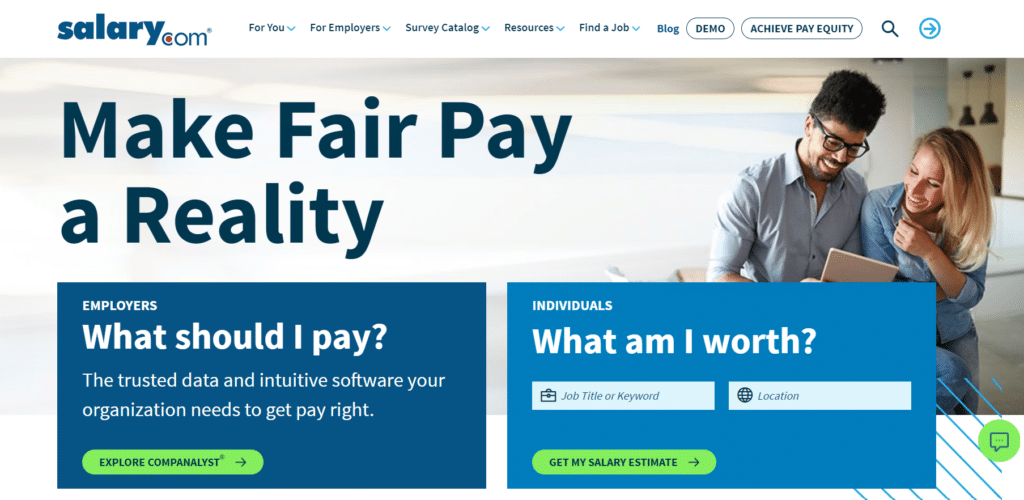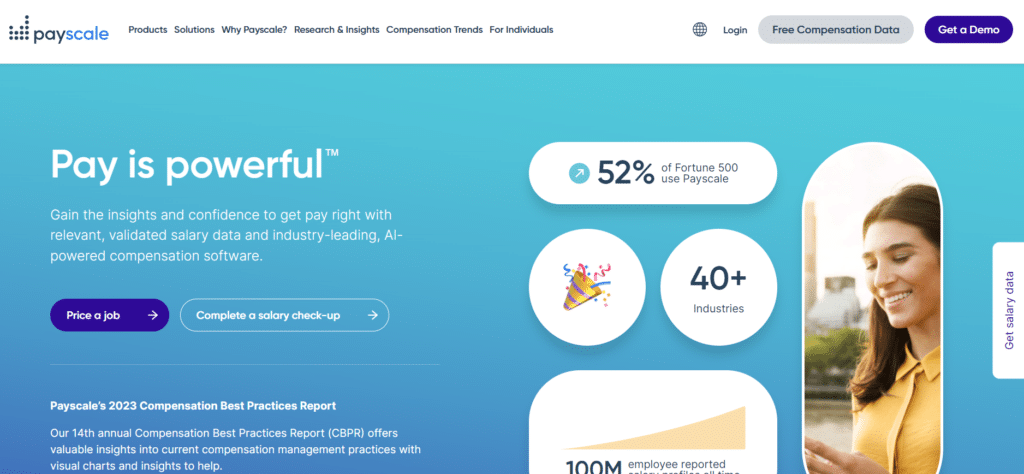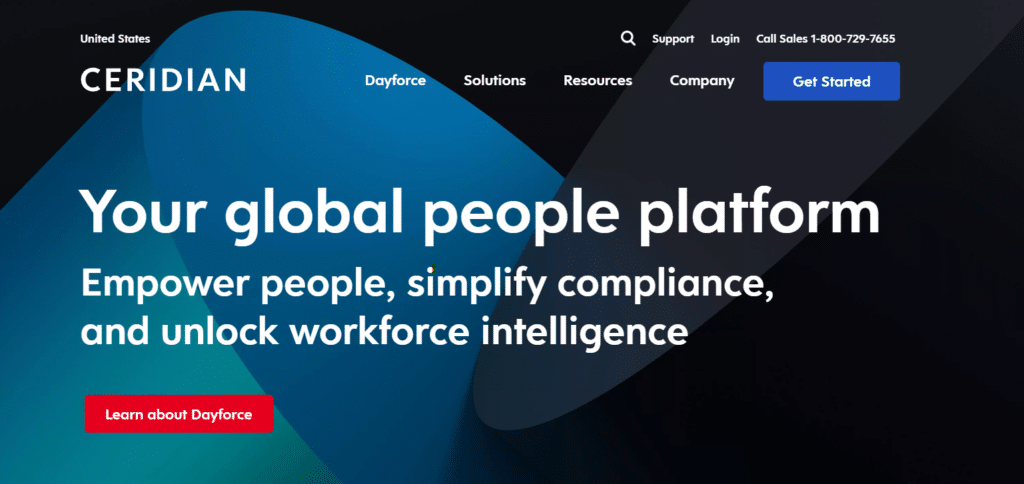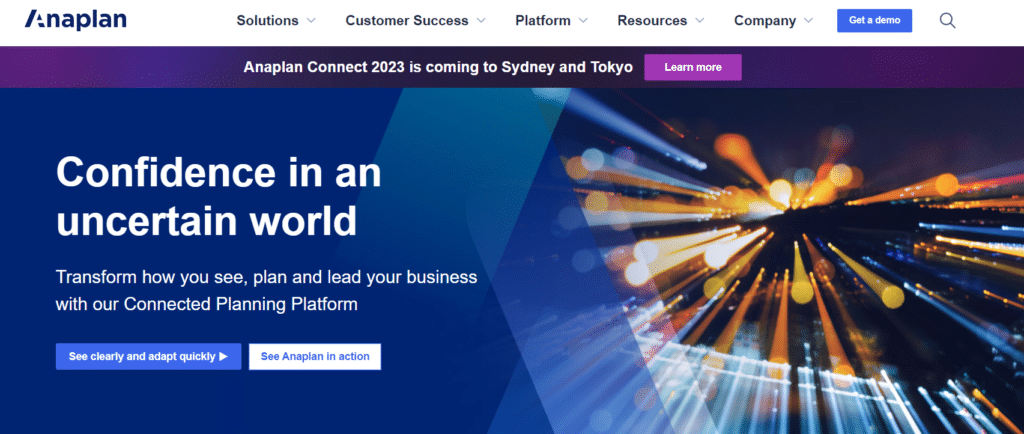In today’s rapidly evolving business landscape, attracting and retaining top talent is more crucial than ever for organizational success. One of the key elements in achieving this is ensuring a fair and competitive compensation management strategy. Compensation management tools have emerged as indispensable assets for businesses seeking to optimize their pay practices and align them with industry standards. These tools empower HR professionals and decision-makers with valuable insights, real-time data, and efficient processes to make informed compensation decisions that foster employee satisfaction and drive productivity.
In this blog, we will explore the top 5 compensation management tools that have garnered widespread recognition for their features, functionalities, and impact on modern HR practices. From providing access to extensive salary data to offering comprehensive compensation planning and analysis capabilities, these tools have redefined the way organizations approach compensation management. So, let’s dive into this insightful journey and discover how these tools can elevate your compensation practices to new heights.
Top 5 Compensation Management tools
1. Salary.com

Salary.com is a comprehensive compensation management tool that helps organizations optimize their salary structures and ensure competitive pay practices. It provides valuable insights into salary data, market trends, and industry-specific benchmarks to enable informed decision-making. With a user-friendly interface, it empowers HR professionals to create, manage, and analyze compensation plans efficiently.
Features:
- Compensation Data
- Market Analysis
- Job Evaluation
- Performance Management
- Compensation Planning
Cost:
You can request a quote from their website.
2. Payscale

Payscale is a modern compensation management platform that focuses on data-driven insights to help businesses attract and retain top talent. Its core functionality revolves around providing real-time compensation data and market comparisons, helping organizations make competitive salary decisions while promoting transparency and fairness.
Features:
- Real-Time Salary Data
- Salary Benchmarking
- Pay Equity Analysis
- Employee Engagement Tools
- Custom Reporting
Cost:
You can request a quote from their website.
3. UKG

UKG is a comprehensive human capital management (HCM) platform that includes compensation management as one of its core modules. It streamlines compensation processes, making it easier for organizations to align pay with performance and industry standards while ensuring compliance with regulations.
Features:
- Compensation Planning and Budgeting
- Performance-Based Pay
- Incentive Management
- Salary Structure Design
- Compliance and Reporting
Cost:
You can request a quote from their website.
4. Ceridian

Ceridian’s compensation management tool is part of its comprehensive Dayforce HCM platform. It offers a holistic approach to managing compensation, enabling organizations to attract, retain, and motivate employees effectively. The tool focuses on simplifying compensation processes while ensuring accuracy and compliance.
Features:
- Salary Benchmarking
- Compensation Planning and Modeling
- Total Rewards Statements
- Merit Increase and Bonus Management
- Analytics and Insights
Cost:
You can request a quote from their website.
5. Anaplan

Anaplan is a flexible cloud-based platform that goes beyond compensation management to encompass various aspects of business planning and analysis. Its compensation management module allows organizations to integrate compensation planning with other business functions, creating a unified planning ecosystem.
Features:
- Integrated Business Planning
- Incentive Compensation Management
- Data Visualization and Modeling
- Collaboration Tools
- Data Security and Compliance
Cost:
You can request a quote from their website.
Benefits of using compensation management tools
Data-Driven Decision Making: Compensation management tools provide access to extensive salary data and market trends, enabling businesses to make informed and data-driven decisions regarding employee compensation. By relying on real-time and accurate information, organizations can ensure that their pay practices remain competitive and aligned with industry standards.
Fair and Transparent Compensation: These tools promote transparency in compensation practices by providing employees with access to their salary data and market comparisons. Transparent compensation fosters trust and confidence among employees, as they can better understand the rationale behind their pay and recognize the organization’s commitment to fairness.
Improved Compensation Planning: Compensation management tools streamline the process of designing and implementing compensation plans. HR professionals can efficiently allocate budgets, set salary ranges, and link pay to performance metrics. This level of automation and precision saves time and minimizes errors in the compensation planning process.
Attracting and Retaining Top Talent: Offering competitive compensation packages is a crucial factor in attracting and retaining talented individuals. With compensation management tools, organizations can benchmark their salary offerings against industry standards, ensuring that they remain attractive to prospective employees and retain their high-performing staff.
Things to consider while buying a compensation management tool
Selecting the right compensation management tool is a critical decision for any organization. The tool you choose will play a pivotal role in shaping your compensation strategy, attracting and retaining top talent, and ensuring fair pay practices. To make an informed choice and find a tool that aligns with your business needs, consider the following factors:
Features and Functionality: Assess the features offered by the compensation management tool. Look for essential functionalities such as salary benchmarking, performance-based pay, incentive management, and customizable reporting. Ensure that the tool addresses your specific compensation requirements and integrates seamlessly with your existing HR and payroll systems.
User-Friendliness: The tool should have a user-friendly interface that is easy for HR professionals and managers to navigate. Complicated systems may lead to errors and resistance from users, impacting the efficiency of your compensation processes.
Data Accuracy and Security: Compensation management involves handling sensitive employee data. Ensure that the tool prioritizes data accuracy, and offers robust security measures to protect employee information from unauthorized access or breaches.
Scalability: Consider your organization’s future growth and expansion plans. Choose a compensation management tool that can scale with your business needs and accommodate an increasing number of employees and compensation packages.
Conclusion
Effective compensation management lies at the heart of an organization’s ability to attract and retain talent, foster employee motivation, and drive overall business success. The top 5 compensation management tools we explored in this blog, including Salary.com, Payscale, UKG, Ceridian, and Anaplan, have demonstrated their worth in streamlining HR processes, improving decision-making, and ensuring fair and competitive pay practices.
Each of these tools brings its unique set of features and functionalities to the table, catering to diverse business needs and sizes. Whether it’s accessing real-time salary data, conducting comprehensive market analysis, or integrating compensation planning with broader business strategies, these tools offer a holistic approach to compensation management.








